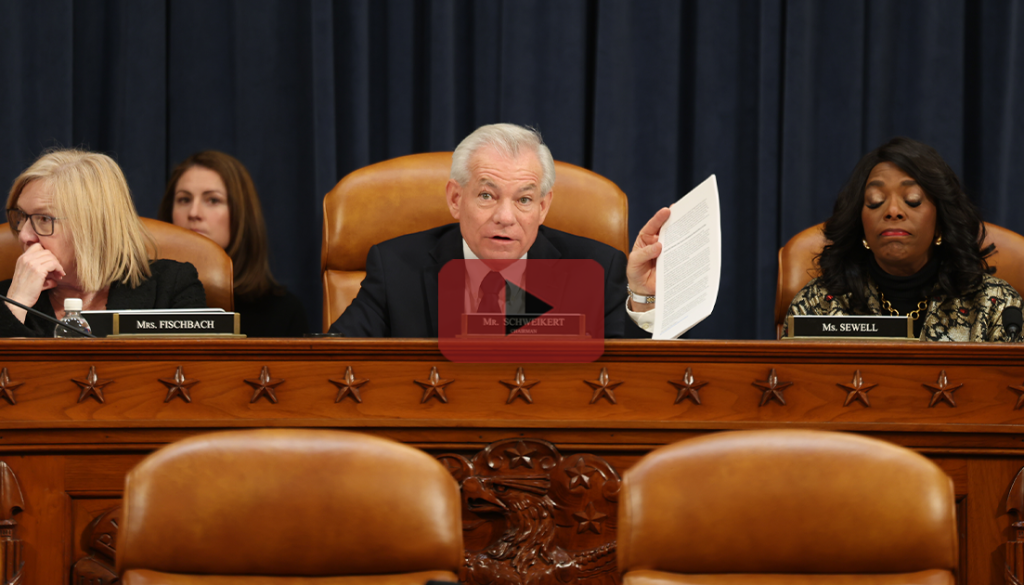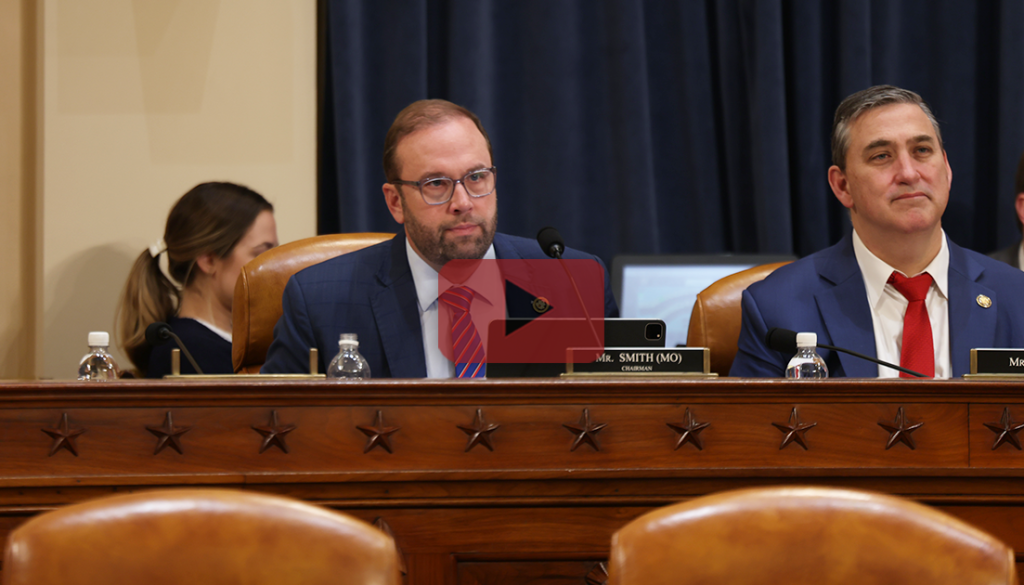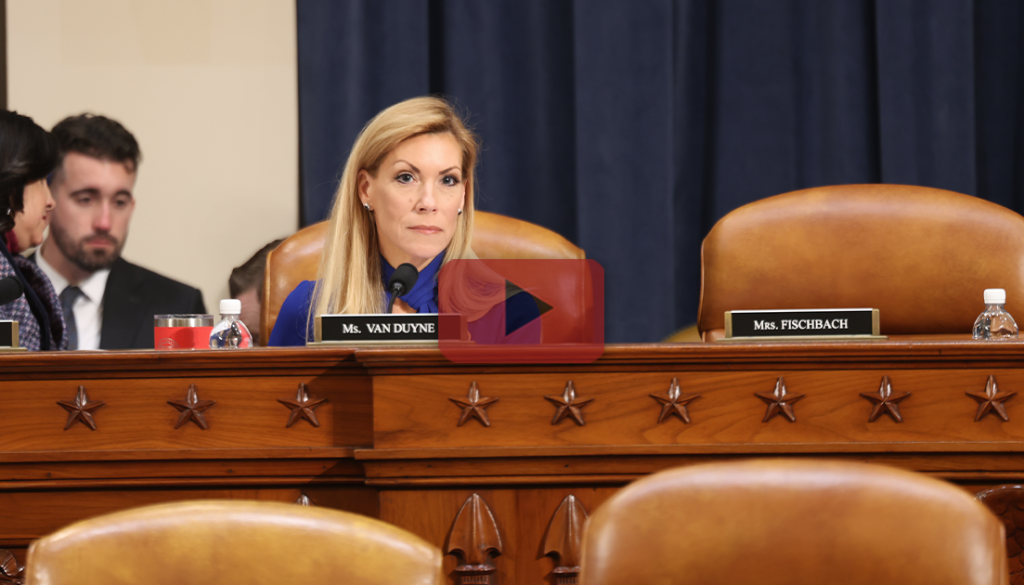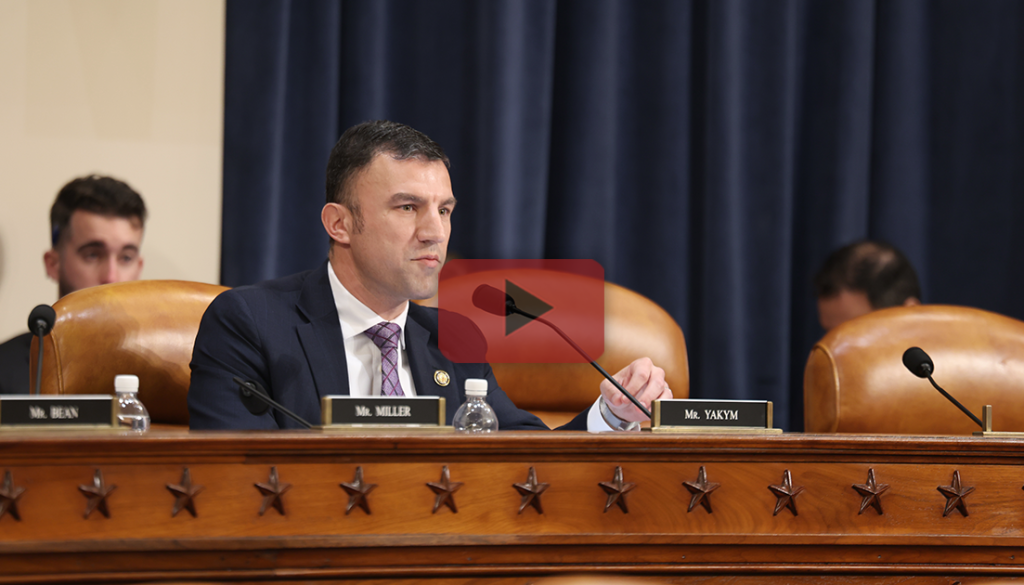WASHINGTON, D.C. – Taxpayers are not receiving the return on investment promised by the injection of billions of dollars to supposedly modernize the IRS and improve customer service from the Democrats’ so-called Inflation Reduction Act. Expert witnesses, several with experience working with the IRS and tax agencies from around the world to modernize technology processes and systems, testified at a Ways and Means Oversight Subcommittee hearing that the IRS needs to prioritize helping taxpayers navigate their tax filings instead of pursuing unnecessary and invasive audits. Despite receiving $4.8 billion in funding for IT modernization, the IRS was recently given a “D” grade on modernization by the National Taxpayers Union. Instead of taking advantage of efficiencies offered by new technology, Democrats chose to allocate the majority of the $80 billion they gave the IRS to hire agents to hit more working families with audits. During the hearing, one major issue with the IRS’s modernization efforts became clear: the agency still operates on outdated legacy systems, including some that date back to 1959, wasting time and resources and making taxpayer data vulnerable to security risks.
Democrats and the Biden Administration promised that more money for enforcement would lead to greater tax revenue flowing into the IRS based on rosy estimates from the Congressional Budget Office (CBO) that have predictably failed to materialize. Similar to other CBO projections, revenue estimates of the IRS’s enforcement funding have not met expectations. Through the end of 2024, the IRS has brought in 56 percent less in revenues than was originally projected by CBO.
IRS Modernization Could Help Answer Mom’s Tax Filing Questions
Even after Democrats showered the IRS with billions to supposedly improve customer service, a lousy 31 percent of phone calls were answered by a live human during the last tax filing season. Instead of hiring tens of thousands of new agents to audit more workers, the IRS should be leveraging new technologies, like artificial intelligence, to drastically improve customer service at the agency. A witness who has helped modernize tax agencies around the world testified that it would be relatively seamless for the IRS to start adopting these technologies.

Rep. David Schweikert (AZ-01): “Even with the stepped up funding…from a press release from the IRS itself during the tax season, only 31 percent of the phone calls were actually being answered…So my mom calls, bless her soul, and an IRS chat bot stays on the phone, helps you fill out the form, maybe sends you a text message of the YouTube video of how to do the form, maybe a PDF if you don’t have the form; instead of a world where only 31 percent of the phone calls are being answered. I have the whole statistics here of how many of the responses are actually not accurate on those calls. How difficult would that type of outreach technologically be?”
Minesh Ladwa, tax administration expert: “I don’t think it’s that difficult…You can absolutely guide and do it effectively, as long as you know exactly who the taxpayer is and what they’re trying to file based upon their previous history, or them as an individual. It’s not that hard.”
Congressional Budget Office Swings and Misses (Over and Over Again)
Repeatedly, CBO estimates have misjudged and failed to accurately project the fiscal price tag of major pieces of legislation passed by Congress. Notably, CBO projections for revenue following the successful 2017 Trump tax cuts were $1.5 trillion lower than actual revenue. Alternatively, the actual tax revenues generated from the IRS’s $80 billion handout from the Inflation Reduction Act were far less than what CBO assumed – 56 percent less than what was projected. These repeated failures to provide accurate fiscal scores of legislation have led to a crisis of confidence in future estimates from CBO.

Chairman Jason Smith (MO-08): “The Congressional Budget Office has a track record of wildly missing the mark when it comes to projecting economic and fiscal outcomes. In 2022, Democrats gave the IRS an $80 billion windfall that CBO initially projected would bring in $200 billion in revenue. Not surprisingly, the CBO has been proven wrong again in this point, the IRS has missed CBO initial revenue projection from enhanced IRS resources by 56 percent which adds up to billions of dollars. Mr. Dublois, you are dead right, dead on with the failures of Joint Tax and CBO, because they work hand in glove when it comes to tax policy. Whether it’s the Tax Cut and Jobs Act of 2017 or whether it was the Inflation Reduction Act, they were off by hundreds of billions, and in some cases, trillions of dollars in their scores. If we as lawmakers have to make decisions based on CBO and Joint Tax’s analysis, you bet it better be right. And it hasn’t been…Based on your previous research related to CBO projections and government funding, why do you think CBO has been so incorrect on their projections?”
Hayden Dublois, federal budget expert: “I think you’re exactly right, specifically regarding their accuracy on the Inflation Reduction Act and the enhanced enforcement efforts. I think it’s pretty clear CBO dramatically overstated the efficiency of the IRS. It’s readily apparent when considering the estimated ROI they had for the enhanced enforcement effort returns compared to the actual ROI, which is off by a factor of six fold just for fiscal year 2024. The actual ROI is less than one meaning for every $1 in revenue gained through the enhanced enforcement efforts, the IRS has already spent more than $1 to gain that…I know you’ve spoken to this in the past, under CBO’s broken model, if Congress were to rescind this slush fund to the IRS, they would assume that the deficit would increase. In reality, it’s pretty clear that an $80 billion fund of the IRS isn’t all that helpful towards deficit reduction and the early results seem to suggest that. I would add more broadly, as I mentioned in my testimony, I think CBO does contain an implicit bias of underestimating the costs of increasing the size of government and overstating the costs associated with tax relief…I think these errors reflect this implicit bias that requires on CBO’s part, some serious self-reflection in order to make sure we don’t make the same mistakes again in the future.”
An IRS Contractor, Not DOGE, Betrayed Taxpayer Privacy
Committee Democrats spent the hearing stoking unfounded fear about the Department of Government Efficiency (DOGE) jeopardizing taxpayer privacy and data. Unfortunately, as Rep. Beth Van Duyne (TX-24) noted, Democrats did not show the same concern for actual politically-motivated leaks of confidential taxpayer data by an IRS contractor.

Rep. Beth Van Duyne (TX-24): “We have absolutely seen no evidence that that has happened, even though we’ve heard it today, except for the fact that we actually had existing IRS policies that allowed security measures to fail, that prevented an employee from unauthorizing access and leaking the tax returns of Donald Trump and approximately 76 other individuals way before we ever even saw Elon Musk take an interest in this. We do know that that happened…In stark contrast Elon Musk’s approach is about transparency. It’s about open systems. When we say ‘transparency in government,’ it doesn’t mean allowing rogue employees to weaponize confidential records. It actually means creating systems where access is properly monitored, securely logged and justified with clear oversight.”
The Biden-Harris Administration Misled the American People About Improved IRS Customer Service
Not only were the American people misled about the cost of the Inflation Reduction Act, but the Biden-Harris Administration also misled them about improved customer service after spending billions of taxpayer dollars. The results have been dismal: less than 1 in 3 calls are answered by a live person, a far-cry from former Secretary Janet Yellen’s promise that the majority of calls would be answered by a live person. The low answer rate is an indictment of the Democrats’ failed approach that ultimately has done little to help taxpayers engage with the IRS.

Rep. Rudy Yakym (IN-02): “In your testimony, you noted the IRS is making progress in improving its level of service since the passage of the inflation Reduction Act. The Taxpayer Advocate found that during the 2024 tax filing season, the IRS achieved an 88 percent level of service with an average answer speed of three minutes. Does that mean that 88 percent of all taxpayer calls to the IRS were answered in three minutes?”
Nina Olson, former National Taxpayer Advocate: “No…What it doesn’t mean is how many calls overall actually were routed to a live assister out of all the calls, and that’s where you get to the 32 percent. Only 32 percent of the calls were routed to a live assister.”
Rep. Yakym: “Janet Yellen, President Biden’s Treasury secretary, promised the vast majority of callers will be connected to live assisters. That was not necessarily true, was it?”Olson: “Not when you count all the calls. That’s correct.”
Rep. Yakym: “When you sum things up by quoting the Taxpayer Advocate one more time, ‘the Biden IRS allocated resources to hit ambitious but arbitrary goals that mean less than meets the eye, and consequently have required the IRS to neglect calls to other telephone lines and work streams like paper correspondence.’”
